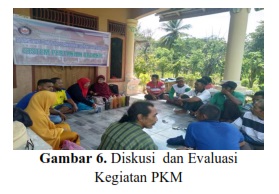Training on the Production of Organic Fertilizer from Livestock Manure and Plant Residues to Support Organic Farming of Dragon Fruit (Hylocereus sp)
Keywords:
Dragon fruit; Moolo Indah Village; organic fertilizer; organic farming systemAbstract
This community service program aims to enhance the utilization of natural resources in Moola Indah Village, Tinanggea District, Konawe Regency, Southeast Sulawesi. The area has great potential for dragon fruit cultivation; however, it has not been optimally utilized. The main challenge faced is the high cost of chemical fertilizers, while the abundant agricultural waste and livestock manure have the potential to pollute the environment if not managed properly. Organic farming, which relies on organic materials as the primary production factor, provides a sustainable solution to this issue by utilizing agricultural waste to produce solid organic fertilizer. The objectives of this training program are to: (1) improve the community's understanding and skills in processing agricultural waste and livestock manure into solid organic fertilizer for dragon fruit cultivation; (2) provide practical training on the production and application techniques of solid organic fertilizer; and (3) raise educators' awareness of the importance of reducing chemical fertilizer use through the implementation of organic farming. The methods used include lectures and discussions to introduce the concept of organic farming and the importance of organic fertilizers, demonstrations on making solid organic fertilizer using EM4 microbes from livestock manure and plant residues, and practical application on dragon fruit plants. The evaluation showed that the participant attendance rate reached 100%, the achievement of training objectives was 80%, material comprehension was 80%, and participants' skill mastery was 70%. Overall, this program successfully improved the community's knowledge and skills in utilizing agricultural waste to support sustainable organic farming.

